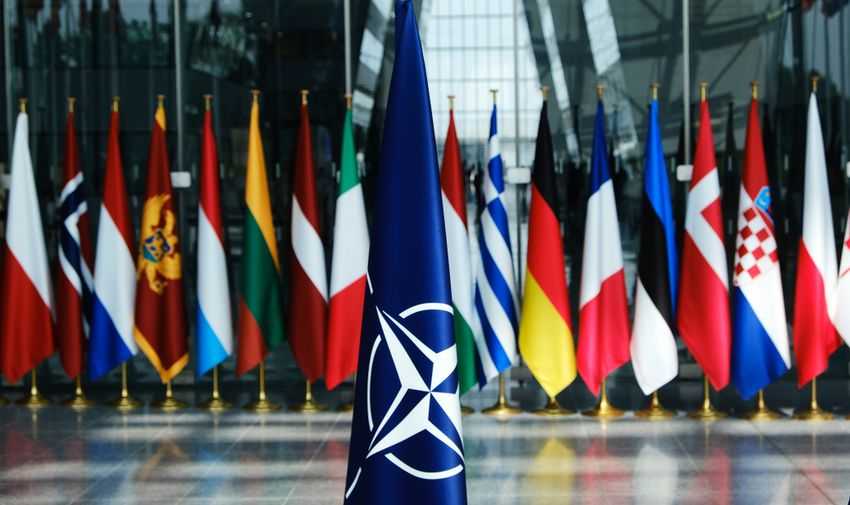Home> #EuropeanAffairs- Ahead of the NATO Summit

30.06.2025
#EuropeanAffairs- Ahead of the NATO Summit
On Friday, June 20th, the Sciences Po American Foundation hosted a discussion on the upcoming 2025 NATO summit, exploring the question of how the transatlantic alliance will adapt and remain strong for the future.
The conversation featured Muriel Domenach, former French Ambassador to NATO and currently a member of the ECFR and GLOBSEC councils, and Erwan Lagadec, Associate Research Professor at GW Elliott School of International Affairs. The discussion was moderated by Ken Weinstein from the Hudson Institute.
Weinstein began by reflecting on the significance of this year’s NATO summit. It is a challenging time for global security, with conflicts around the world, and new leaders to manage them. It will be the first summit with Mark Rutte as Secretary General, first of President Trump’s second term, and German Chancellor Friedrich Merz’s first summit. An initial question directed to Domenach and Lagadec was about the preparations for the summit and what is likely to occur.
Domenach agreed that this will be a major summit “mainly because the moment is decisive and the stakes are high.” She expects it will be focused primarily on defense spending and finding agreement between allies. Lagadec expanded on why the summit is historic, not only for leadership changes, but because of the unresolved issues from previous years. These include integrating initiatives on climate change, women and security, human security, and cybersecurity as part of the NATO 2030 agenda. The hope is for the summit to be uneventful in the sense that there is agreement in defense spending policies and no unpredictable declarations made.
The conversation turned to how different allies approach defense spending and potential challenges to finding consensus. Weinstein noted that President Trump appears happier with NATO because of the significant increases in European defense spending. Spain seems the most reluctant in meeting the 5% GDP spending target (split between 3.5% on defense and 1.5% on related infrastructure). This leads to concern whether other countries would join in this perspective.
Domenach continued that there is a carefully scripted choreography for the summit that should meet spending expectations, raising industrial capacity and deterrence standards for an attack on Europe. Lagadec added on the topic of defense spending targets that NATO will highlight the progress in getting all countries to 2% by the end of 2025, and that Spain will likely agree as long as the 5% goal remains broad and non-binding.
Weinstein turned the attention to France and the implications of the 3.5% spending target, especially given shifts in the country’s focus on defense. Domenach acknowledged that France faces some challenges to meet 3.5% in the short term, but emphasized France’s efficiency and procurement systems. She added France would focus on promoting a European framework for defense, and should encourage private savings to help fund European defense rather than investing in the US economy. Lagadec addressed Germany’s defense spending commitments, saying that reaching 3.5% would mean Germany being among the top defense spenders worldwide. He also focused on the commonality of European defense and that Mediterranean countries, like Spain and Italy, are likewise concerned with Russian threats to security.
In concluding the discussion, Dimitri Grammaticopoulos, Programme Advisor for Sciences Po Executive Education, presented the 5-day Geopolitics and security program, designed for professionals interested in exploring how geopolitical shifts and emerging technologies reshape global security, military strategy, and business. The course has both quantitative and theoretical componentents, focusing on how to craft and assess security and defense policies.